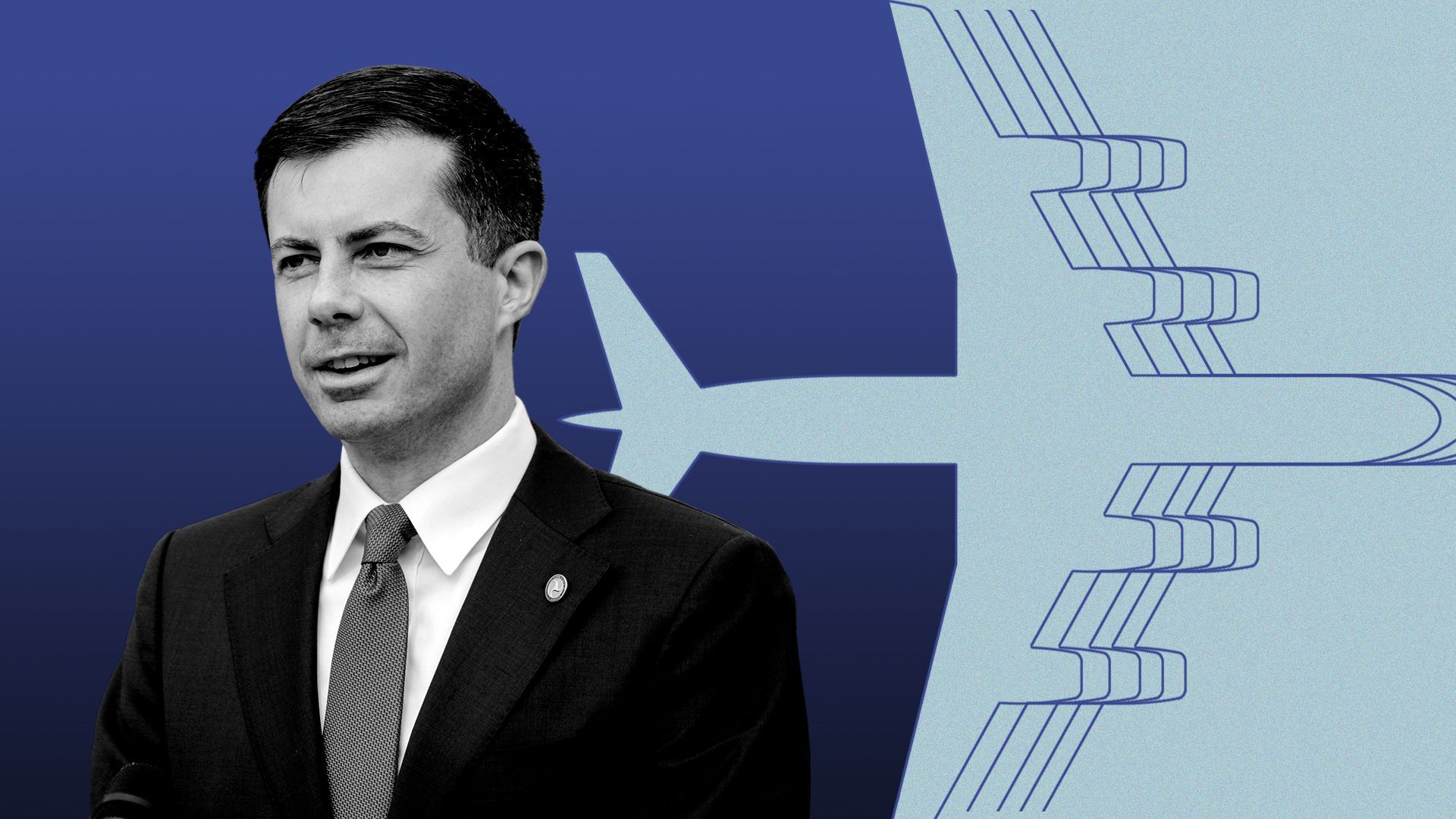| |
| |
| |
| Presented By the Charles Koch Foundation |
| |
| Axios What's Next |
| By Joann Muller, Jennifer A. Kingson and Alex Fitzpatrick · Oct 03, 2022 |
| What's the latest with the world's once high-flying electric car startups? Turns out many are struggling, Joann reports today. Today's newsletter is 1,161 words ... 4½ minutes. |
| |
| |
| 1 big thing: EV startups' uphill climb |
 |
|
| Photo courtesy of Arrival |
| |
| UPS-backed electric vehicle startup Arrival built its first delivery van last week — a significant milestone, considering the challenges it and other upstart EV makers like it are facing, Joann Muller reports. Why it matters: Arrival and other fledgling commercial EV companies are struggling to launch production as funding dwindles and bigger rivals like GM and Ford start to crank out electric trucks and vans of their own. - Some newbies have already collapsed, like Electric Last Mile Solutions, which went bankrupt in June.
- For the rest, the goal is to at least show progress to investors — which is why Arrival made such a big deal about producing a single van on what happened to be the last day of the third quarter.
Driving the news: Arrival said Friday it had missed its third-quarter target to start serial production, but celebrated the fact that it produced its first "production verification vehicle" — in other words, an early prototype. Arrival is trying to produce an innovative electric vehicle while simultaneously pioneering a radically new manufacturing process. - Instead of a giant factory with traditional assembly lines, Arrival's EVs are to be built in "microfactories" at a fraction of the cost.
- So far, Arrival has just one microfactory, in the United Kingdom. It plans to open a second site in Charlotte, North Carolina, in 2023 — a year behind schedule due to cash woes that also led to staffing cuts.
How it works: Instead of a moving assembly line, automated mobility robots carry unfinished vehicles to different stations, where other robots are assigned a series of assembly tasks. - Instead of steel, many of the van's body panels are made of a proprietary polypropylene and fiberglass composite fabric.
- Robots cut the fabric into desired shapes, which are heat-molded and then joined to other panels or the van's aluminum frame using structural adhesives instead of metal welds.
The process saves a fortune on traditional processes like stamping, welding and painting, but it's difficult to master, Mike Abelson, CEO of Arrival's U.S. operations, tells Axios. - "It's a Catch-22," says Abelson, a former GM executive. "The innovative things that make Arrival unique are things nobody has done before, so they create the most challenges."
What to watch: Arrival, which delayed an electric bus project and laid off employees to conserve cash in August, now says it needs to raise more capital. The big picture: Other struggling EV manufacturers face similar challenges as financing options tighten. - Lordstown Motors last week said it began production of the Endurance, an electric pickup truck for businesses. So far, it has built a grand total of two and aims to build 50 by year-end. It too is looking to raise more cash.
- Faraday Future said it will start production of its long-delayed FF 91 sports car by the end of 2022 with $100 million in new financing after resolving an investor dispute.
- Rivian, meanwhile, is leaning on a lucrative Amazon contract while it boosts consumer production — but it too recently laid off 6% of its workforce.
Share this story. |
    |
| |
| |
| 2. DNA sequencing gets cheaper |
 |
|
| Illustration: Aïda Amer/Axios |
| |
| Biotech giant Illumina recently unveiled new genome sequencing instruments that stand to dramatically cut the costs involved, Axios' Alison Snyder reports. Why it matters: DNA sequencing enables doctors to monitor for cancer recurrence, epidemiologists to track COVID-19 case levels, and vaccine developers to know their targets. Details: Illumina says its new sequencers are twice as fast as its existing, widely used model. - The new, roughly $1 million devices can sequence a human genome for less than $240. That work cost $100 million just 21 years ago.
The impact: Less expensive genome sequencing could help address a lack of diversity in genetic datasets, an issue that has limited our understanding and treatment of some diseases. Read the rest. |
    |
| |
| |
| 3. U.S. pushes for aviation emissions cuts |
 |
|
| Photo illustration: Annelise Capossela/Axios. Photo: Erin Kirkland/Bloomberg via Getty Images |
| |
| The U.S. is using multilateral talks in Montreal to seek stronger aviation emissions targets — and the new climate law is providing diplomatic leverage, Transportation Secretary Pete Buttigieg said in an exclusive interview with Axios' Andrew Freedman. Why it matters: Aviation accounted for just 2% of global energy-related greenhouse gas emissions in 2021, but its share is growing quickly. Driving the news: The UN International Civil Aviation Organization (ICAO), which oversees international aviation issues, has moved slowly to set emissions reduction goals. - The U.S. is now working with other countries to speed things up.
What they're saying: Buttigieg said Washington's recent climate moves have given the administration more credibility. - "There's enormous momentum coming into this conversation. And it's really energizing for us to be in a leadership position now."
The big picture: Buttigieg hopes to get other countries to agree to the White House's 2050 net zero target for aviation emissions. - That will require a mix of using sustainable fuels, advancing new propulsion technologies, air traffic control and routing reforms that provide flights with fuel-saving paths, and other measures, he added.
Read the rest. |
    |
| |
| |
| A message from the Charles Koch Foundation |
| The future of talent is skills over degrees — will you win it? |
| |
 |
| |
| For businesses to compete in today's tight labor market, they need strategies to access this new labor force. Try implementing new tools developed by the Society for Human Resource Management and the Charles Koch Foundation to transform your hiring and win the best talent. Sign up to learn more. |
| |
| |
| 4. Iranians embrace anti-censorship tools |
 |
|
| Protesters outside Iran's consulate in Istanbul on Thursday. Photo: Erhan Demirtas/Bloomberg via Getty Images |
| |
| Iranians are flocking to tools designed to help citizens of blacked-out nations connect to the internet, Axios' Ashley Gold, Margaret Harding McGill and Scott Rosenberg report. Driving the news: "Daily demand for virtual private network (VPN) services in Iran is up over 3,000% compared to before the protests," Simon Migliano, head of research at Top10VPN.com, told Axios via email. Of note: Google says its Jigsaw subsidiary's open-source tool, Outline, has also seen a spike in demand from Iran this week. - Outline allows third parties to set up secure VPNs that are resistant to disruption and censorship efforts.
The big picture: Protests erupted in dozens of cities in Iran last month over the death of 22-year-old Mahsa Amini while she was in police custody for violating the country's mandatory head-scarf law. Read the rest. |
    |
| |
| |
| 5. Longread: Keeping the internet's time |
 |
|
| Illustration: Sarah Grillo/Axios |
| |
| Alex here. As my friend and former colleague Nate Hopper reports over at the New Yorker, there's a brewing — and fascinating — "contest for influence over how clocks are kept in synch across the Internet." Why it matters: Ensuring that computers and servers agree on the time is critical to the Internet's basic operation — yet few if any of us ever give the matter a second's thought. What's happening: In the early days of the proto-Internet, longtime engineer and computer scientist David Mills developed a way of keeping networked computers' clock synced. - Called the Network Time Protocol (NTP), it has been through several revisions, mostly with Mills at the helm.
- "By 1988, Mills had refined NTP to the point where it could synchronize the clocks of connected computers that had been telling vastly differing times to within tens of milliseconds," Hopper writes.
- But his influence over NTP development waned over the years, and he's been sidelined from a group of engineers working on a new version.
The intrigue: Some in the NTP community have been frustrated by how much influence Mills has held over the underlying code, and feel it's time for new ideas and voices. - Yet he's still plugging away on a revision of his original model, even though he suspects it will go largely ignored.
|
    |
| |
| |
| A message from the Charles Koch Foundation |
| Is your top priority finding and retaining talent? |
| |
 |
| |
| Get solutions designed to meet your talent needs. See how the Charles Koch Foundation and Society for Human Resource Management empower business leaders with the tools, resources and strategies needed to tap into new labor pools by focusing on skills over degrees. Be the first to get them here. |
| |
| A hearty thanks to What's Next copy editor Kathie Bozanich. Was this email forwarded to you? Get your daily dose of What's Next by signing up here for our free newsletter. |
 | | Are you a fan of this email format? It's called Smart Brevity®. Over 300 orgs use it — in a tool called Axios HQ — to drive productivity with clearer workplace communications. | | |









No comments:
Post a Comment